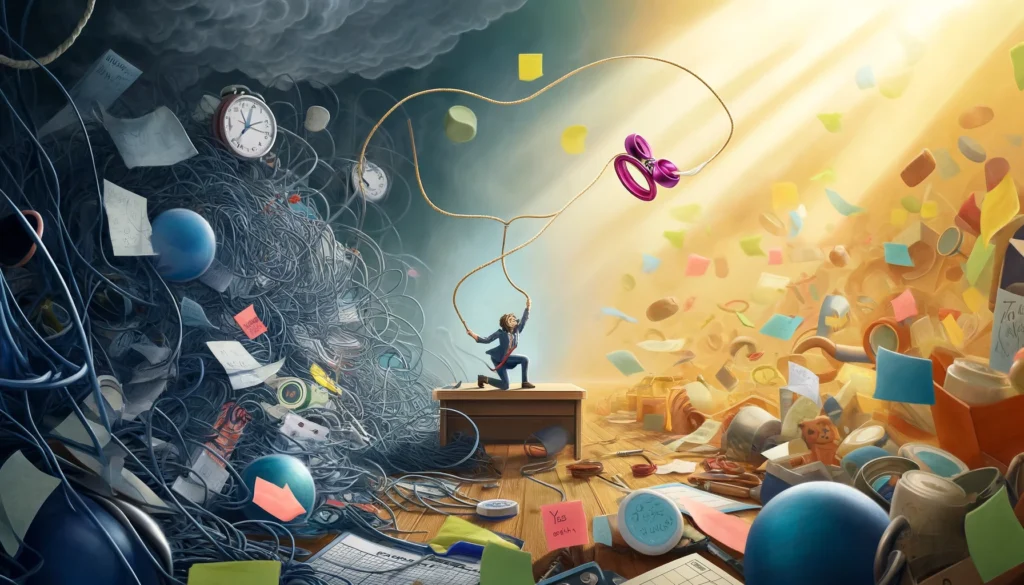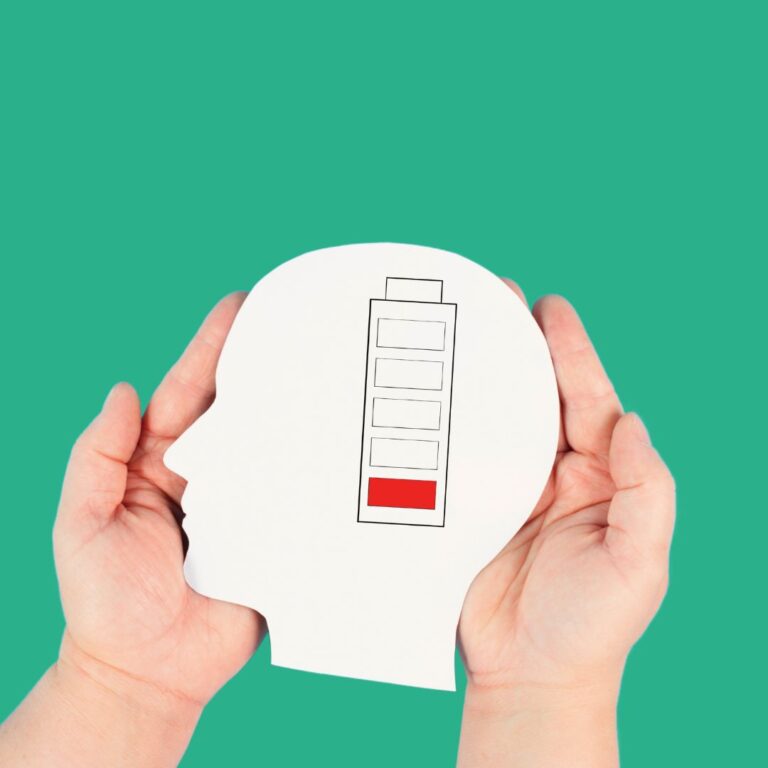The Ups and Downs of Saying No (and yes)
How good is your yes if you can’t say no?
Many of us with ADHD struggle with saying ‘yes’ to things, or can have a hard time saying ‘no’. Like when I signed up for a pricey business course last year and even with my spidey sense telling me it wasn’t the “right” time, I said yes! My mom was in and out of hospital, and it was all I could do to just keep showing up where and when I could. In my family, with clients, and in my work.
My mom passed a few months ago and in a conversation with my grief counsellor, I was reflecting on the irony of not being able to deliver the SELF-care course I’ve had in my heart and my head for so long because I’ve been too busy taking care of myself since my mom’s passing.
And then this:
“How good is your yes if you can’t say no?”
A great question is one that inspires curiosity and wonderment. I’ve been reflecting on this question, especially in the context of ADHD: for many of us living with ADHD directly or not (i.e. ourselves, our loved ones or folks we just have in our lives that drive us a bit bonkers sometimes because we just don’t understand their actions or behaviours like saying YES to something they can’t or don’t like doing and not saying NO to things that are not a great idea for them).
This question gets to the heart of a significant challenge in how people with ADHD can struggle with boundaries – even knowing that they can and do exist!
There is a quality to this binary language – not all yes-es are created equally. Nor are the nos. Not all Yes-es are what they seem.
There is an automatic assumption that “YES” is positive. Yet, words in and of themselves are benign. They have no power other than the ones we give them. No meaning other than the ones we ascribe.
Boundaries – be they physical, emotional, time-generated, within ourselves and/or with others can be SUPER HARD to navigate. If you know, you know. And if you don’t, then consider the challenge of being a people-pleaser. If you are someone who identifies with caring for and about other people (hello caregivers) – then you too may be in the habit of putting other people’s needs ahead of your own. How sustainable do you imagine this is?
When there is a challenge in our ability to regulate our emotions and in our inhibition control, it makes perfect sense that we may utter the words YES! when something exciting comes along without being able to remember what we’ve already committed to, be able to understand and interpret time in a way that could help us make an informed decision about what saying YES actually means in “real-time”, that there is even a choice to not say YES, and be able to tollerate the discomfort of the disapointment (be it short-term or long-term cause remember, seeing/experiencing “time” can be hard) that may comes along with saying something other than what we think the situation demands of us to say in that moment.
And all THAT to say… our ‘Yes’ often comes at a high cost. It’s like giving away pieces of ourselves without assessing the impact, leaving us depleted and sometimes even resentful. Gaining the ability to say ‘No’ when something isn’t truly a great fit for us is not just about refusal; it’s about honoring our time, our energy, and most importantly, our well-being. The self-care course we’ve got planned will be delving into more on this but suffice it to say…
Here are my top three tips for getting better at saying ‘No’, especially for those of us with ADHD:
- Pause Before You Respond: Allow yourself to take a moment before answering. This pause can be transformative, allowing you to consider your own needs and capacities realistically. Maybe ask another question out of habit to buy yourself more time to remember that you can take a PAUSE before saying yes! Something like “Can I get back to you on that” or even “I’ll need to get back to you on that” could be something to try to help build in this pause for yourself to check in with how you actually want to respond.
- Practice Self-Compassion: Understand that saying ‘No’ does not make you a bad person or friend. It’s a step towards self-respect and self-care. You’re acknowledging your limits, and that’s a strength, not a weakness. The word “No” in and of itself is benign. It doesn’t mean you (or they) are a horrible unlovable person. “no”tice what you are making that “no” mean. What else could it mean? Why would it be a good thing for you to consider using in this situation?
- Use Clear and Simple Language: You don’t need to offer a detailed explanation for your ‘No’. A simple, “I can’t commit to this right now” or “Thank you for thinking of me, but I’ll have to pass” keeps your message clear and respectful.
- Remember the ‘YES’ in your NO: How can that “no” be a yes to something more meaningful to you, like self-care, passions, or rest? See your ‘no’ as creating space for what truly matters, making it a powerful act of self-affirmation.
Navigating the ups and downs of decision-making can feel a lot like being caught in a never-ending yo-yo trick, especially when ‘yes’ becomes your go-to response.

Imagine every ‘yes’ stretching the string a bit more, until you’re too thin to bounce back. That’s been a part of my world for longer than I care to admit.
“How good is your yes if you can’t say no?”
I’m going to invite you to slow down and have a think about that question with me here.
This query goes beyond ADHD; it taps into the essence of setting boundaries.
Ever felt like you’re always on standby for others, at the expense of your own needs? It’s a common script for many of us. Yet, persistently living on ‘yes’ drains us, leaving little in the tank for what truly matters.
The attraction of saying ‘yes’ is real—like agreeing to run a marathon when your usual run involves catching the bus. The real cost?
Your peace,
your energy,
and at times, your sanity.
Here’s a reframe: ‘no’ isn’t just a rejection; it’s an affirmation of your values – making room for what truly aligns with your well-being.
Here’s a reframe: What if ‘no’ wasn’t perceived by us to be an automatic rejection or carry a ‘negative’ judgement about us? What else could we make that word mean? Instead, we considered this word to be a tool to maintain the invisible boundaries we have that keep us healthy, happy and thriving?
So, how do we master this art of yo-yo yes-no decision-making without snapping?
- Hit Pause: Before auto-responding with a ‘yes’, take a beat. Even a simple “Let me get back to you” can be a lifesaver, helping you avoid the overcommitment trap.
- Choose Self-Kindness: ‘No’ isn’t the language of the selfish; it’s the dialect of self-care. Rethink ‘no’ not as denial, but as choosing your engagements more mindfully.
- Opt for Clarity: A ‘no’ doesn’t need a backstory. “I’m booked solid” or “Thanks, but not this time” keeps it straightforward and guilt-free.
- The ‘Yes’ in ‘No’: Each ‘no’ is a ‘yes’ to something that sparks joy for you. View ‘no’ as your pass to prioritize what genuinely matters.
If you are resonating with this message, here’s the yo-yo trick I’m about to bust out: I’d love for you to say ‘YES’ to our 5-week Self-Care course. It is launching May 15th so you can’t say YES right away (by design). My ask is for you to first pause (see tips above). 😉 If joining us in an adventure exploring ways to get out of overwhelm, get in touch with what brings you joy, have meaningful conversations and delve into all the things that have you being your most awesome self feels like a great big irresistible and joyful ‘yes’, then your spot awaits with open arms. We’ll even shine some light on those invisible boundary lines, and lots more. No compulsion, just an invitation to what feels right for you.
Keen to learn more? Jump on the waitlist [insert link here], and let’s explore these dynamics together.
Thanks for letting me share this slice of life with you. May your ‘yes’es enrich and nourish you and may you find more joy in your ‘no’s.
Warmly,
[Your Name]




Leave a Reply